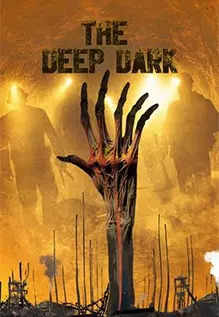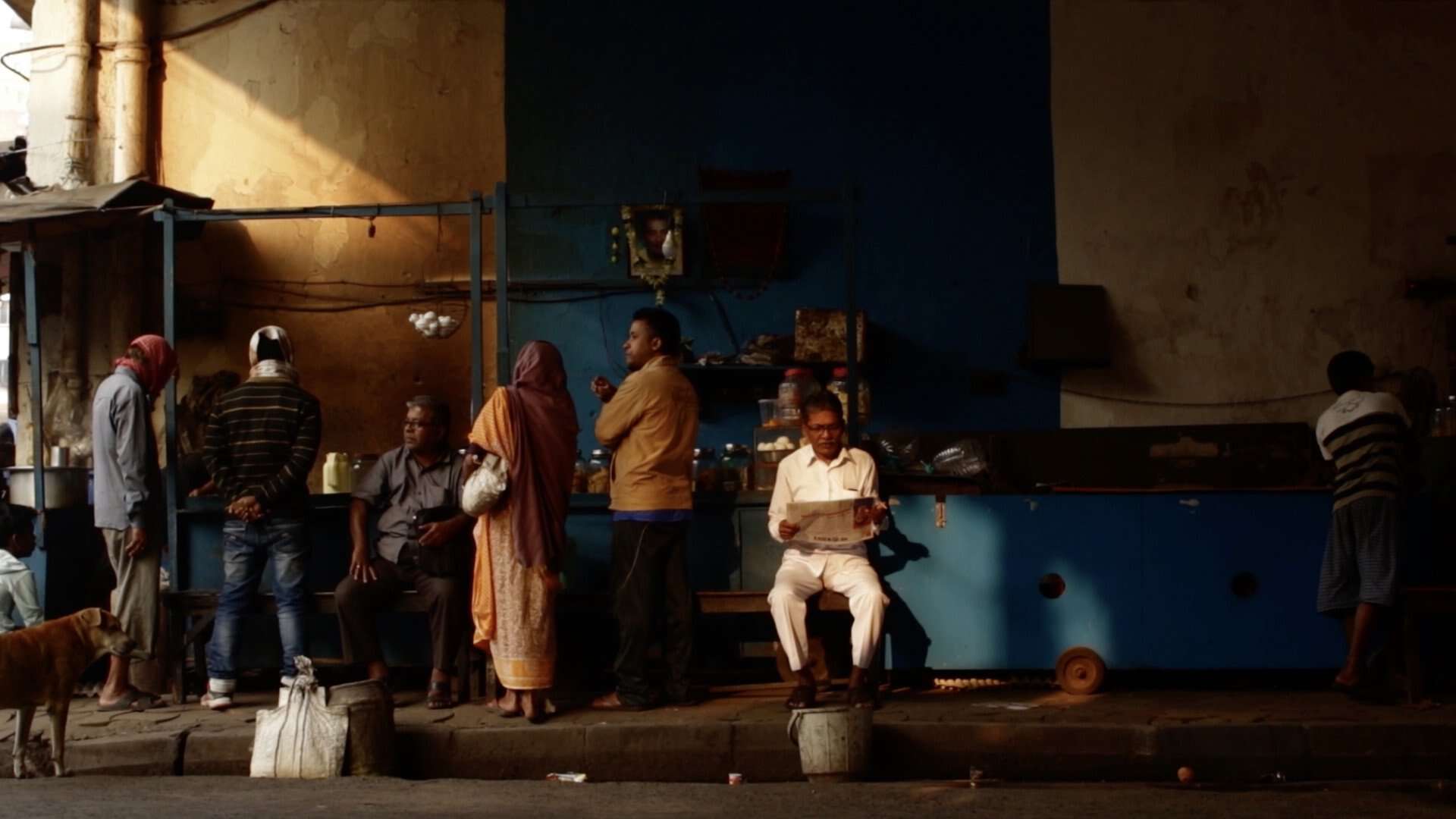Movie Reviews
Review: Argylle – diamond in the rough or just a chunk of coal?

Argylle is a poorly executed film with way too many head-scratching moments …
In the new film Argylle, a popular spy-thriller author finds herself in the middle of a real-life adventure that is strangely connected to the plots in her series of books. Directed by Matthew Vaughn, who brought us the Kingsman movies, there is an exhausting amount of action and implausibility to be had here, but it is mostly tongue-in-cheek fun.
I don’t want to spoil any twists or turns so I won’t delve into the plot too much other than to explain that said novelist, Elly Conway (Bryce Dallas Howard) becomes involved with a spy, Aidan (Sam Rockwell), and lines become blurred between the protagonist of her stories, Argylle (Henry Cavill), and the real-world agent.
The worst part of this movie is the horrendously bad editing where Elly’s mind’s eye switches between Aidan and Argylle, usually during extreme action sequences. This entire gimmick is unnecessary to the plot and horribly delivered. If they were going to do this, they might as well of tried to do it right. It’s simply annoying and starts to movie off on the wrong foot.
Additionally, if you get extra annoyed by poor rendering of animated cats, then you have another reason to avoid this film. Elly’s Scottish Fold cat, is another completely unnecessary part of this movie that is badly executed on a technical level. You’ll ask yourself “Why?” more than once before it is all over.
I hate to tell you this, but if you are going to see this movie because you are a John Cena or Dua Lipa fan, then you are going to be extremely disappointed as they are barely in the film – and (again) mostly unnecessary.
The film also stars Samuel L. Jackson, Bryan Cranston, Ariana DeBose and Catherine O’Hara in parts that are best left undescribed. Bryce Dallas Howard does do a fine job in the lead role here, and is surprisingly effective in… well, there’s another one of those spoilers.
On the plus side, after most of the plot twists have revealed themselves, this does become a more satisfying movie, with the absurd action sequences delivering some hearty laughs and thrills.
In the end Argylle is a poorly executed film with way too many head-scratching moments, but if you can overlook its many missteps it still manages to be a fun, albeit strange, experience.

Movie Reviews
The Deep Dark Movie Review: This eerie lovecraftian horror is a descent into hell

Review: Directed by Mathieu Turi, ‘The Deep Dark’ is a claustrophobic thriller set in the shadowy confines of a subterranean cave. The film opens in 1856 with an explosion that causes a tragic collapse, hinting at the dangers that await a new group of miners tasked with recovering valuable artifacts. The story centers around professor Berthier (Jean-Hugues Anglade), who leads a team of young men into a mine with the promise of riches. However, the team’s collective greed and the professor’s insistence on going deeper into the cave result in a landslide, trapping them inside. As they attempt to find a way out, they awaken a deadly creature that was best left undisturbed.
One of the film’s most striking features is its use of black and white cinematography (by Alain Duplantier), which effectively underscores the dark theme and creates a sense of claustrophobia. However, the monochrome visuals can be tiring over time, and you might find yourself craving a splash of color to break the monotony. Turi’s direction emphasizes the eerie atmosphere of being trapped in an enclosed space with threats lurking around. The film’s slow-burn approach allows for a gradual build-up of tension, but the real action doesn’t kick in until later, which can test your patience.
Once the killing starts, however, ‘The Deep Dark’ delivers relentless bloodshed with some of the most gruesome and creative slayings seen in a horror film. That said, faster pacing of this Lovecraftian horror with more spooky action and less talk would have been ideal. Performances are decent but Amir El Kacem as Amir and Diego Martín as Miguel stand out. Also, because their characters have been fleshed out better than the others. The film relies heavily on jumpscares and special effects, with mixed results. The creature design is appropriately grotesque, but it at times feels gimmicky rather than genuinely terrifying. Despite this, the overall atmosphere and the sense of impending doom keep the audience on edge.
‘The Deep Dark’ succeeds in its primary goal of creating a tense and unsettling horror experience, though it struggles with pacing and character development. Once the action gets going, the film becomes a relentless bloodbath, leaving the audience gasping for breath and longing for daylight. While it’s not without its flaws, Turi’s commitment to a dark and suspenseful narrative makes it a decent addition to the horror genre.
Movie Reviews
‘Kingdom of the Planet of the Apes’ and ‘Monster’ movie reviews

Kingdom of the Planet of the Apes is purportedly the first in another trilogy of films that will show the evolution of ape society from its current hunter-gatherer phase and develop the character of Noa. As such, director Wes Ball – anticipating a few years’ lucrative employment – has taken his time laying the foundations in that deliberate manner familiar from other Hollywood franchises. This makes Kingdom a slightly ponderous proposition that may satisfy fans who have dutifully followed the previous films, but will do little for those seeking mind-numbing entertainment on a Friday night.
Those areas where the films keep advancing are costume, make-up and special effects, which have rendered the ape impersonation almost perfect. This extends to skillful mimickry of the way various apes move. It’s only when we get up close that we catch a glimpse of the actor behind the elaborate façade. Yet this degree of perfection only tends to throw the leaden nature of the narrative into sharper relief. As the story dragged on and on, I began to feel nostalgic for those days when the movies would just put a guy in a gorilla suit and tell him to start beating his chest.
Kingdom of the Planet of the Apes
Directed by Wes Ball
Written by Josh Friedman, Rick Jaffa, Amanda Silver
Starring Owen Teague, Freya Allen, Peter Macon, Kevin Durand, Eka Darville, Lydia Peckham, Sara Wiseman, Travis Jeffery, William H. Macy, Neil Sandilands
USA, M, 145 mins
Monster
Although Kingdom of the Planet of the Apes is set to be a blockbuster, Monster is one of those critically acclaimed films that can expect to enjoy a modest success at the box office.
Director Hirokazu Koreeda is celebrated for his portrayals of families – big, small, sometimes barely recognisable as such. This time, he focuses on a family that consists of only a single mother, Saori Mugino (Sakura Ando), and her 11-year-old son, Minato (Soya Kurokawa), living in a provincial Japanese city. As they sit together, talking to a photograph of Minato’s dead father, we can see how closely they are bonded. They watch from their apartment window as a downtown building that contains a nightclub goes up in flames.
Yori Hoshikawa (Hinata Hiiragi) and Minato (Soya Kurokawa). Suenaga Makoto
“If a pig’s brain is put into a human head,” Minato asks his mother, “is that person a human or an animal?” It sounds silly, but this “pig brain” proposition will recur throughout the film, attributed to several different characters.
The mother-son relationship develops cracks when Minato starts acting strangely, snipping away at his own hair, coming home from school with only one shoe. One evening he doesn’t come home at all, being eventually located in an old train tunnel hidden in the nearby woods. When he sustains an injury to his ear, Saori heads to his school to see what’s going on. Minato has laid the blame on his teacher, Mr Hori (Eita Nagayama), who has also allegedly accused the boy of having a pig’s brain.
When Saori confronts the teachers, especially the principal, Mrs Fushimi (Yuko Tanaka), they become a caricature of Japanese shame and conformity, bowing deeply, apologising and promising to do better. Saori is rightly incensed by this behaviour, which does nothing to solve the mystery of her son’s strange behaviour or confirm that the awkward Mr Hori did the things he was accused of doing. The principal, who has recently lost her grandson in a terrible accident, seems almost catatonic. The teachers apologise reflexively, with no explanations. We feel as bewildered as Saori, especially when it seems Mr Hori is continuing to teach as usual, with no action being taken.
Koreeda resolves the mystery by degrees, jumping back and forth in time to show us the origins of the things we can’t explain. These jumps are handled so seamlessly it takes a few seconds each time for us to realise where we are. In this film, nothing is quite what it seems. The crucial figure may not be Mr Hori, but Minato’s classmate, Yori Hoshikawa (Hinata Hiiragi), a small boy who is disliked by most of the class because of his eccentric behaviour. It’s Yori who claims constantly that he has a pig’s brain, and who leads Minato to the tunnel in the woods, where he has a hideout in an old train carriage. Yori is unhappy at home, being raised by a beer-swilling father who is usually at work or in a bar.
It begins to seem as if angelic-looking Yori is a classic bad seed, and for Minato, a bad influence. Yori keeps confessing that he’s a monster. As he carries a stove lighting device with him and roams around at night, it seems likely he had a hand in the fire that burned the hostess club his father frequented. Look closely and one can see the club was called Gilles de Rais, named after an infamous French child murderer of the Middle Ages.

Single mum Saori Mugino (Sakura Ando) with her 11-year-old son, Minato.
While we are trying to understand the relationship between Minato and Yori, Mr Hori is being persecuted by reporters and slowly driven mad. As we flash back and forth between past and present, Hori’s true role in the story begins to emerge.
Koreeda keeps us wondering about who, if anyone, is the monster. With each part of the puzzle falling into place, the picture keeps changing. It’s not even clear what being a “monster” might mean.
One noteworthy aspect of the film is the music, which was the final score by Ryuichi Sakamoto (1952-2023), best known for his haunting themes in Oshima’s Merry Christmas Mr Lawrence (1983) and Bertolucci’s The Last Emperor (1987). It’s a typically subtle score, hardly more than a few touches of the piano where a scene requires a little emphasis.
Monster won the Queer Palm, at last year’s Cannes Film Festival, which is a somewhat dubious honour in that it narrows the way we read the relationship between two 11-year-old boys. Minato and Yori are only on the cusp of puberty and whatever the nature of their friendship, it would be ridiculous to label it “queer”, in the way that word is now used to denote self-conscious gender non-conformity. Surely, it’s not unusual for children of that age to become passionately attached to their friends, often at the expense of their families. Are they considered “monsters” because of the closeness of a relationship that even makes Minato feel uncomfortable?
Koreeda makes no moral pronouncements, showing huge sympathy for all his characters, from the boys to Saori, Hori and the principal. Everyone has a hard time in this story, but they are given ample opportunity to declare their innocence to the audience, and the ending is not at all what one might expect. Perhaps the monster is no more than a red herring.
Monster
Directed by Hirokazu Koreeda
Written by Yuji Sakamoto
Starring Sakura Ando, Eita Nagayama, Soya Kurokawa, Hinata Hiragi, Yuko Tanaka, Akihiro Kakuta, Mitsuki Takahata, Shido Nakamura
Japan, M, 127 mins
Movie Reviews
Short Film Review: Abridged (2019) by Gaurav Puri

“No admissions in schools without money”
Gaurav is an independent filmmaker, a graduate in Film Direction & Screenplay Writing from the prestigious Satyajit Ray Film & Television Institute, India. His films, fiction, documentary and experimental, have been screened at various national and international film festivals. He has been a producer/member of a film collective, Lightcube, acclaimed as one of the leading resources for research and presentation of image-forms. His interests lie in audio-visual forms that intersect various folk-indigenous and modern-technological rationalities of storytelling. “Abridged” won the Golden Royal Bengal Tiger for Best National Documentary.
The film begins with the images of a construction site, while a voice from the news talks about the partial collapse of Majerhat Bridge in South Kolkata, and the disaster the event caused. Images of various parts of the city intermingle with each other, some of them somewhat artistic some of them more documentary-like, as the director seems to catch daily life in the area from the very early morning. Newspaper distributing, people sleeping on the street under bridges, trains passing under bridges and passerby all become part of the narrative.
As the film description states, “In recent years, Kolkata has witnessed the collapse of bridges Majerhat being the most recent. Set in the context of rapid urbanization, the film, titled “Abridged” examines the lives of various bridges, both over and under–how lives are organized around the bridge as a public space”. As such, the focus of the movie is on exactly that, describing everyday life in the city, and particularly the part of it that takes place under bridges.
It is impressive to watch people having set up shops under the constructions for example, as a shoe salesman highlights quite eloquently, while a number of them, seem to actually live beneath them. Schoolgirls playing with a dog, a mother combing her children’s hair, a chicken jumping in front of a motorcycle, cars parking are just some of the things that happen under bridges, in a testament on how life can take place anywhere, particularly in such crowded places as Kolkata.
The construction of bridges is also highlighted, through some very intriguing frames and close ups, with Puri and his cinematographer Sukhan Saar evidently being able to find beauty in the most surprising moments, not omitting however, to show that reality is also ugly, as the garbage and the corrosion of the constructions highlights. A man talking about how without money, people cannot even attend school adds a social comment in the narrative as does the aforementioned salesman who talks about how the government wants them to leave, but they have nowhere to go. In that same fashion, the signs on the street that state ‘buy less, built more” appear as rather ironic, also in a testament to the meaningful editing here by Pritam Mandal.
A song heard in the background as the night falls once more, while the bridge builders keep working, a couple of voyeuristic scenes, a child looking at the camera, a man setting up his “bed”, a woman who sheds light on the reasons people end up living under bridges, and a man with his goat herd passing the street, conclude the movie.
Gaurav Puri follows an observational approach, in a documentary though, that is exceptionally shot, with the documentation of reality moving hand to hand with visual beauty. This combination, and the presentation of a life that is very seldom depicted on cinema deems “Abridged” as an exquisite film, a testament to the prowess of all people involved in it.
-

 Politics1 week ago
Politics1 week agoStefanik hits special counsel Jack Smith with ethics complaint, accuses him of election meddling
-

 Politics1 week ago
Politics1 week agoThe White House has a new curator. Donna Hayashi Smith is the first Asian American to hold the post
-

 Politics1 week ago
Politics1 week agoAnti-Trump DA's no-show at debate leaves challenger facing off against empty podium
-

 News1 week ago
News1 week agoAs student protesters get arrested, they risk being banned from campus too
-

 News1 week ago
News1 week agoVideo: Police Arrest Columbia Protesters Occupying Hamilton Hall
-

 World1 week ago
World1 week agoNine on trial in Germany over alleged far-right coup plot
-

 World1 week ago
World1 week agoStrack-Zimmermann blasts von der Leyen's defence policy
-

 Politics1 week ago
Politics1 week agoNewsom, state officials silent on anti-Israel protests at UCLA





















